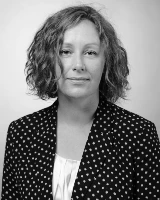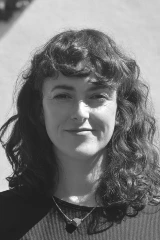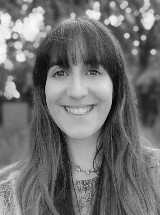Volume 1 focuses on the state of knowledge of the physical science basis of climate change, both globally and nationally. The volume contains information published from the IPCC AR6 WGI report, as well as material from the relevant Special Reports from the IPCC and various state agencies including EPA Ireland, Met Éireann and the Marine Institute. The volume updates and extends the analysis provided in the National State of Knowledge Reports on climate change (2012, 2017), and consolidates the current and ongoing research into climate change in Ireland, the observed changes in the climate system as well as future climate projections for Ireland.

Prof Jennifer (Jenny) McElwain holds the 1711 Professorial Chair of Botany at Trinity College Dublin's School of Natural Sciences. She is currently the Head of Botany within the School and Director of Trinity Botanic Gardens. Over the past 20 years her research and teaching have focused on the development and use of palaeobotanical methods (proxies) that use fossil plants to reconstruct the evolution of Earth's atmospheric composition and climate on multimillion year timescales. Her research team use both fossil plants and modern experimentation to investigate how fluctuations in atmospheric CO2, O2 and climate have influenced plant evolution and ecology over the past 400 million years. Her research programme has been successfully funded through both national and international grants and awards including Science Foundation Ireland, Irish Research Council, European Research Council, US National Science Foundation, Environmental Protection Agency, National Geographic and Marie Curie. She is a Member of the Royal Irish Academy. In 2022 she was awarded the Royal Irish Academy Gold Medal in Environmental Sciences and Geosciences. She has published over 100 research papers and three books and is currently co-lead author on Ireland’s first Climate Assessment Report Volume 1 to be published in 2023 with funding from the EPA.

Prof. Peter Thorne is the director of the ICARUS Climate Research Centre at Maynooth University.
He was a Coordinating Lead Author on the IPCC WGI for the sixth assessment cycle and a section facilitator on the synthesis report. He is Chair of the Global Climate Observing System’s Atmospheric Observations Panel for Climate and sits on numerous World Meteorological Organization standing committees, working groups and task teams. He has published in excess of 100 peer-reviewed publications on observed climate changes, detection and attribution, monitoring and projections. He has prior experience across 4 countries and national meteorological organisations, SMEs and academia. He has contributed to numerous IPCC reports as well as two US climate assessment products.

Dr Clare Noone is a senior Postdoctoral Researcher at ICARUS Maynooth University specializing in climate change research and air pollution. As of present, she is working on the EPA funded Five Year Assessment Report for Ireland, Volume 1-Science: Ireland in a changing world. Ireland's Climate Change Assessment (ICCA) on Climate Research will deliver a comprehensive Ireland-focused, state of scientific knowledge report on our understanding of climate change, the options to respond to the challenges it poses, and the opportunities that may arise from the planned transition to a climate-neutral and climate-resilient economy and society. Volume 1-Science: Ireland in a changing world covers topics such as Natural and anthropogenic climate drivers, Paleoclimate, Future global climate, Carbon cycle, SLCFs, Event attribution, Climate change observations and projections for Ireland, Low Likelihood High Warming storylines and Tipping points (AMOC shut down, Greenland ice sheet) and potential irreversibility.
Research interests include climate change and air pollution, climate communication, low-cost sensors for local air pollution, GHG’s, NMHC’s, VOC’s, high-resolution weather forecasting and air quality modelling. Completed Ph.D. at the Centre for Climate and Air Pollution Studies, School of Physics, National University of Ireland, Galway. Thesis entitled “The Measurement & Analysis of Non-Methane Hydrocarbons at Mace Head Atmospheric Research Station, Co. Galway, Ireland”

Dr Danielle Gallagher is a molecular biologist and metabolic engineer. Her background ranges from plant science to industrial biotechnology, though the focus of her work has always centred on understanding carbon flux in metabolism and how this can be applied in climate change mitigation strategies - from sustainable biofuel and carbon efficient feedstock production, to enteric methane mitigation strategies. She completed her BA(Mod) in Botany at TCD, followed by MRes and PhD at ICL where she specialised in microbial strain engineering strategies as alternative, low carbon fuel sources. Following this, she went into climate entrepreneurship projects that focused on lowering carbon and nutrient waste from our food systems in Ireland, and completed various programs that supported this work, including the Enterprise Ireland New Frontiers, Climate-KIC and the Ellen MacArthur Foundation circular economy training. She is the director of DúlaBio, a nature based enterprise, and was technical support and advisor on the Uni-Eco project at TCD. She is a climate justice advocate, having taken part in climate pact ambassador and climate reality leadership training programs, as well as environmental justice campaign training with Friends of the Earth.

Dr Deirdre McClean is a senior post-doctoral research fellow. She is a community ecologist and epidemiologist whose research centre on the themes of how species respond to environmental change. She completed her BA(Mod) in Zoology from TCD where she studied speciation in island bird populations in Indonesia. Following this she obtained a PhD in TCD Zoology with Dr. Ian Donohue working on the ecological stability of communities and ecosystems underdoing disturbance. During this time,she combined field work on freshwater macroinvertebrates and laboratory experiments on microbial communities. She worked briefly as a lecturer in Dublin Business School teaching statistics and ‘Business and Big Data’ before moving to Edinburgh as a Wellcome Trust post-doctoral fellow. Here, she worked with numerous researchers and groups including; Dr. Luke McNally, Prof. Nick Colegrave, Prof. Mark Woolhouse and Dr. Helen Alexander researching antimicrobial resistance in pathogenic bacteria. In tandem with experimental work she examined the potential efficacy of global strategies of antimicrobial stewardship and worked on a large collaborative project with the Institute for Livestock Research in Kenya looking at the risk of urban livestock keeping for the transmission of bacteria and their antibiotic resistance genes. Through her work in epidemiology she gained an interest in policy impact research. Climate change and antimicrobial resistance are two of the greatest chronic challenges to our societies globally and the intersection of these fields is where much of her research interests lie.She then returned to Ireland and to TCD to take up this post-doctoral work on Ireland's national climate change assessment report with professor Jenny McElwain.